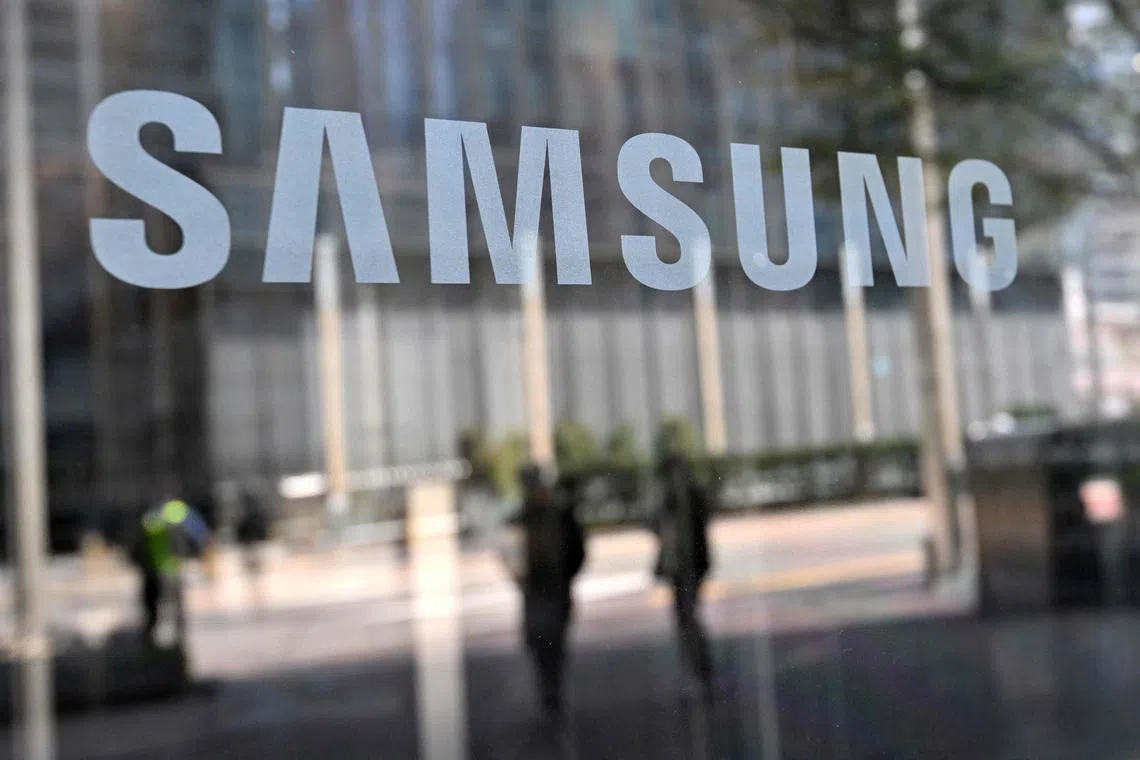Samsung replaces chip chief after SK Hynix takes AI lead
Sign up now: Get ST's newsletters delivered to your inbox

Samsung has fallen behind in one of the key growth areas for memory chips, its core business.
PHOTO: AFP
Follow topic:
SEOUL – Samsung Electronics has replaced the head of its semiconductor arm, appointing a memory chip veteran to spearhead efforts to catch up with SK Hynix in the booming artificial intelligence (AI) arena.
South Korea’s largest company named Dr Jun Young-hyun the new leader of its most important business line. He replaces Dr Kyung Kye-hyun, who will head up Samsung’s Advanced Institute of Technology and a future business team.
Dr Jun joined the division in 2000 and helped the company develop its basic Dram and flash memory chips for smartphones and servers.
The move comes as Samsung has fallen behind in one of the key growth areas for memory chips, its core business. SK Hynix has taken the lead in high-bandwidth memory (HBM) chips, which have seen explosive growth because they are used for training AI models.
Investors have become increasingly concerned about Samsung’s response to its smaller rival, which recently reported its fastest pace of revenue growth since at least 2010. That has propelled a 36 per cent rally in SK Hynix shares since the start of 2024, far outpacing a Samsung stock that is little changed.
SK Hynix is the biggest supplier of memory chips used to develop ChatGPT-like services around the world. Its production capacity for such chips is almost fully booked in 2025.
It plans to spend about US$14.6 billion (S$19.7 billion) building a new complex in South Korea to meet demand for HBM chips, which work alongside Nvidia accelerators in creating and hosting AI platforms. It is also erecting a US$4 billion packaging facility in Indiana – its first in the United States.
Samsung, which also makes logic chips and operates a foundry business, has embarked on a global expansion plan that encompasses a US$40 billion investment in US chipmaking.
It says it has begun mass production of its latest HBM product, an eight-layer chip, and plans to mass produce 12-layer HBM chips in the second quarter.
The company expects its supply of HBM chips to increase by at least three times in 2024 compared with 2023. BLOOMBERG

